The AMD Radeon RX 5600 XT Review, Feat. Sapphire Pulse: A New Challenger For Mainstream Gaming
by Ryan Smith on January 21, 2020 9:01 AM ESTSynthetics
Moving on, we have our synthetic performance testing, taking a look at geometry throughput, pixel throughput, memory compression, and more.
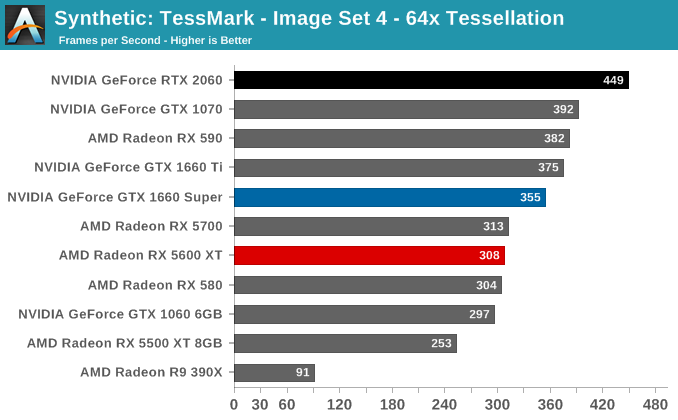
Given the significance of cutting a quarter of Navi 10’s GDDR6 memory bus, I was very curious to see what that would do for synthetic performance. But for better or worse, this has created more questions than it has solved.
The numbers listed below are accurate, in as much as these are the results I get when testing these cards. Whether they are correct, however, is another matter.
The problem, in short, is that due to AMD’s very aggressive power savings/idling implementation for their Navi 10 cards, I have been unable to get these cards to run at their full memory clockspeeds when executing the the Beyond3D Suite benchmark suite. The GPU clocks regularly pass 1600MHz like they should, however AMD’s telemetry is reporting that memory clocks are rarely hitting 7Gbps, let alone 12Gbps+. As a result, we end up with results like the pixel test below, where the RX 5600 XT is beating the RX 5700, an otherwise impossible outcome.
As best as I can tell, this issue has been going on since the launch of the Radeon RX 5700 series back in July, but it’s only now that I’ve noticed it, in large part due to the RX 5600 XT cards being slightly less aggressive in their idling. In other words, those cards are boosting to higher memory clockspeeds more often, putting them ahead of the RX 5700 and bringing the clocking issue front and center.
I’m still working on a proper fix for the issue, but for now the results with Navi 10 cards should be taken with a large grain of salt. The benchmark itself is still fine, but AMD’s aggressive power management (and lack of an easy means to disable it) is kneecapping AMD’s performance in these benchmarks.
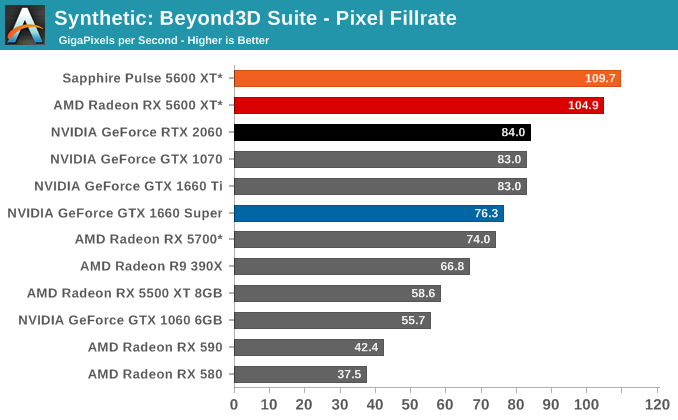
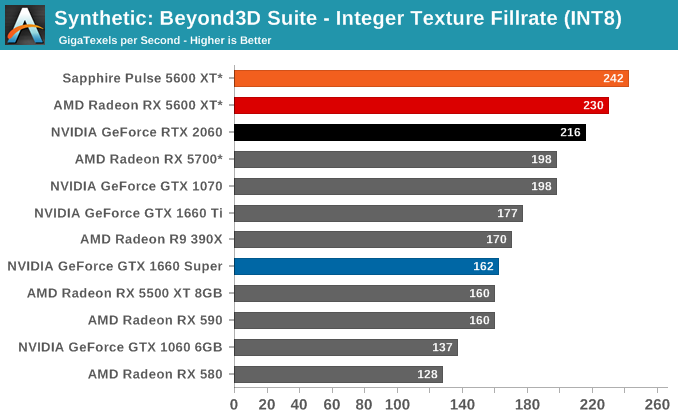
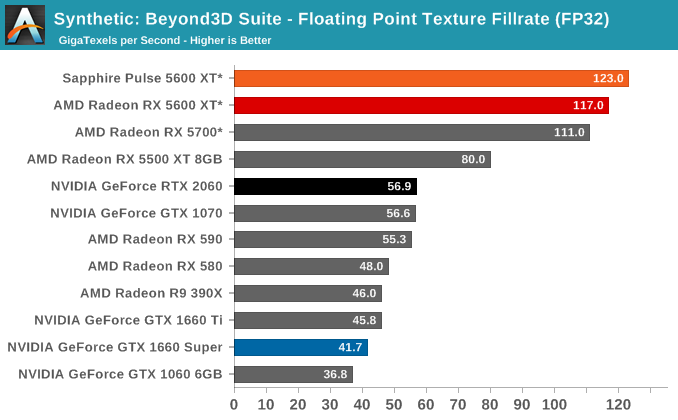
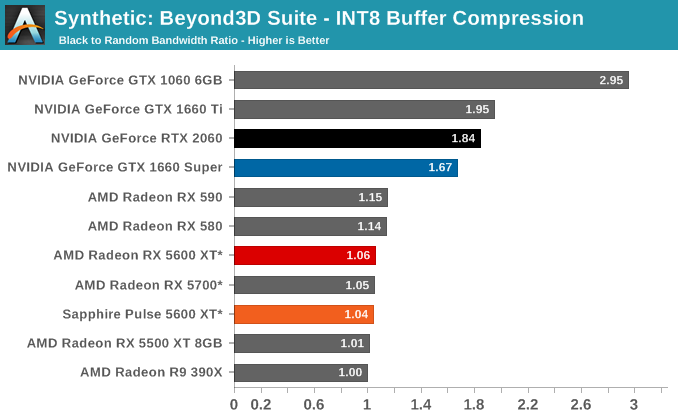
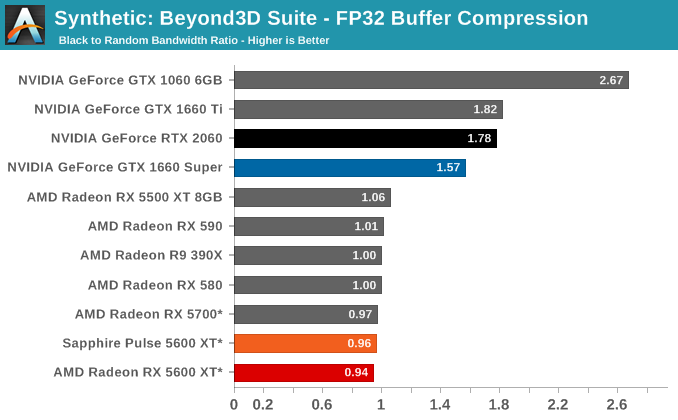










202 Comments
View All Comments
eva02langley - Tuesday, January 21, 2020 - link
I must admit that I am a little bit surprised. End up being as good as the 5700 XT.eek2121 - Tuesday, January 21, 2020 - link
GTA V remains a persistent thorn in AMD's side (on Windows at least).That being said, if AMD had positioned this card at $250/year, it would have been quite a steal.
philosofool - Tuesday, January 21, 2020 - link
39 decibels. 39. Thirty. Nine. Nine, with a three in front of it.Also, thanks a bunch for including 1440p results. I suppose that's a given at this performance tier, but it's very helpful to me, and many others, I'm sure.
TheWereCat - Tuesday, January 21, 2020 - link
What are you trying to say with 39?philosofool - Tuesday, January 21, 2020 - link
I could have been cleared: it's 27% quieter than a 2060 and over 50% quieter than a 1660 Ti. That's awesome.Yojimbo - Monday, January 27, 2020 - link
Than which 2060 and 1660Ti, though? The one you would otherwise buy if you were interested in a quiet card?GreenReaper - Tuesday, January 21, 2020 - link
With Freesync, I'd accept slightly lower frame rates acceptable for a quieter and less-power-hungry build. Of course if you're looking you want to be paying more and burning more power - or perhaps just turning detail down, which would probably also help with any memory issues.alufan - Tuesday, January 21, 2020 - link
would testing on a pcie4 enabled board make any odds? just curious the card is pcie4 and it would be nice to see testing done with the latest specs.GreenReaper - Tuesday, January 21, 2020 - link
My guess would be no, because the key issue appears to be bandwidth between the GPU and its memory, on the card itself - but I agree, it'd be interesting to know. Perhaps more for some compute?Dave321 - Tuesday, January 21, 2020 - link
Overall test results are skewed by A massive 2060 win in GTA V. 5600XT was faster in most games.